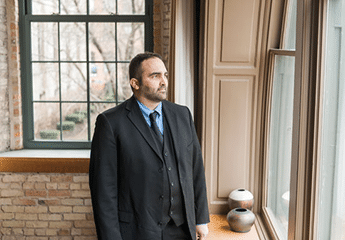Serving in leadership is a great privilege that carries with it tremendous responsibility. Leaders in ministry provide direction, confidence, encouragement and hope to those they serve. Ministry leaders carry great influence—influence that must be intentional in its use.
One area where those in key ministry positions can do harm involves crossing the line from leading with authority to acting in an authoritarian manner. In ministry circles, this concept is often referred to as “spiritual abuse.”
Here are three ways to identify and address this growing concern in ministry leadership.
RECOGNIZE THE PROBLEM
First, it is important to understand what spiritual abuse is not. Things that don’t fall under the category of spiritual abuse include: authoritative proclamation of Biblical truth, strategic management and enforcement of institutional ethical standards. Additionally, appropriate admonition, rebuke and discipline also don’t qualify as ‘spiritual abuse.’
With this being said, it is vital to grasp a working definition of this problem. In their book, “The Subtle Power of Spiritual Abuse,” authors David Johnson and Jeff Van Vonderen assert that this type of abuse is “the mistreatment of a person who is in need of help, support, or greater spiritual empowerment, with the result of weakening, undermining, or decreasing that person’s spiritual empowerment.”
Spiritual abuse occurs when authoritarianism rises to the surface as leaders act out of a position of power rather than humble influence.
Ways in which this dysfunction is seen in ministry settings include:
- Rules are adopted and enforced without adequate rationale and/or relationship.
- Agenda-driven “proof texting” of Scripture supplants careful exegesis.
- Disagreement is categorized as unspiritual, predictably devoid of a redemptive spirit.
- Issues are framed inaccurately in order to maintain power and retain loyalty.
- Leaders are insulated from substantive criticism and proper reporting relationships.
- Mandates against “talking to others” are inappropriately superimposed.
- Publicity about the organization and/or key leaders is sanitized to an unhealthy degree.
- People are treated like property rather than investors in the mission.
- When questions arise, side topics are inserted so as to distract from more valid concerns.
- Funds are accessed by select personnel without safeguards to ensure accountability.
- Individuals with power place “winning” far above process and problem-solving.
LEAD WITH AUTHORITY
Once an unhealthy dynamic is identified, leaders can be agents of change to offset the negative effects of spiritual abuse. Wise managers set up good boundaries for personal accountability. Careful use of institutional funds and an open-door policy are also important behaviors to model.
And servant leadership exhibited by those at the top of the org chart, despite fears to the contrary, enhances the work environment and can be appropriately integrated into even high-output, strategic settings.
RESPOND WITH GRACE AND TRUTH
In order to address spiritual abuse in your setting, default with a grace-filled response. When your leadership is questioned or criticized, take a moment to step back and consider the motivation behind what is being communicated, even though this approach may feel counterintuitive.
When angry, seek to de-escalate rather than grow bitter or vengeful. Endeavor to keep lines of communication open with people at all levels of the organization, including those with whom you disagree or where chemistry may be lacking.
Work hard to create an atmosphere where authentic conversation happens in an environment of mutual respect. Meditate on Bible passages such as Romans 12:9-21. Consider the implications to your life and ministry for the glory of One.
A DEGREE TO HELP YOU SERVE OTHERS IN MINISTRY LEADERSHIP
Our A.S. in Biblical Studies and B.S. Ministry Leadership degree program will equip you with the knowledge and practical application of how to identify situations of spiritual abuse, lead with positive authority and respond in grace and truth. Connect with an enrollment counselor to learn more about this exciting program.










